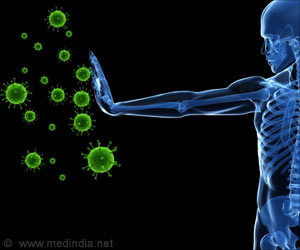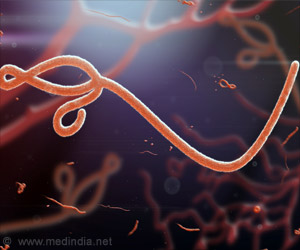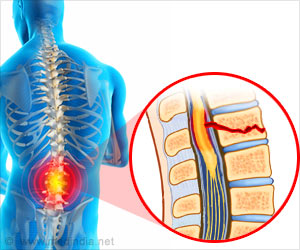The very fist breath of newborn releases crucial signals that shape the immunological environment of the lungs.
Highlights
- The newborn's first breath causes the release of cytokine, interleukin (IL)-33.
- Interleukin (IL)-33 causes activation of ST2-expressing "type 2 innate lymphoid cells" (ILC2s).
- ILC2s were always known to play a crucial role in defending the lungs against parasites or influenza viruses.
- But according to recent findings, ILC2s also balance the immune environment of lungs and ensure that the lungs stay calm and healthy to ensure proper gas exchange.
Along with each breath, numerous viruses, bacteria and pollutants also enter the lungs, which needs to be prevented from entering the body.
To protect the body from infection and damage, the lungs uses its own collection highly specialized immune cells that are equipped to maintain the balance between host defense and tissue quiescence.
But the formation of this balanced immune homeostasis in lungs emerged after birth, and this was largely unexplored.
Now, for the first time, the group of Sylvia Knapp, Director of Medical Affairs at CeMM Research Center for Molecular Medicine of the Austrian Academy of Sciences and Professor of Infection Biology at the Medical University of Vienna showed with the help of mouse models that the very first breath of a newborn releases crucial signals that shape the lifelong immunological milieu of lungs.
The mechanical forces of spontaneous ventilation at birth lead to the release of interleukin (IL)-33, a cytokine with a wide-range of effects.
Here the ILC2 causes the release of IL-13, another cytokine. The ILC2 derived IL-13 causes the differentiation of the newborn's alveolar macrophages into anti-inflammatory M2 phenotype. These M2 cells are specialized cells that maintain the health and immune environment of the lungs.
"ILC2-cells are crucial in defending the lungs against parasites or influenza viruses, but little was known about their role in lung homeostasis", first author Simona Saluzzo, PhD Student at CeMM and the Medical University of Vienna, explains. "Now we understand that right after birth, ILC2 are responsible for the differentiation of alveolar macrophages into specialized cells that keep the immune system in check and ensure that the lungs stay calm and healthy to ensure proper gas exchange."
The type 2 innate lymphoid cells or ILC2-induced effects protect the lungs from excessive inflammation and the environmental triggers that are encountered daily.
Senior author Sylvia Knapp emphasizes "We could show in our study that the described mechanisms are crucial in achieving lung quiescence after the first contact with the outside world. However, these processes at the same time increase the susceptibility to bacterial infections, such as caused by pneumococci. In other words: The mechanism that maintains the lung function of gas exchange at the same time explains why bacterial pneumonia is the primary cause of death by an infectious disease in Western countries."
The study is published in Cell Reports
Reference
- Simona Saluzzo et al. First-Breath-Induced Type 2 Pathways Shape the Lung Immune Environment. Cell Reports; (2017) doi.org/10.1016/j.celrep.2017.01.071
Source-Medindia











